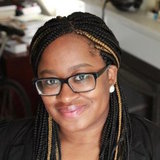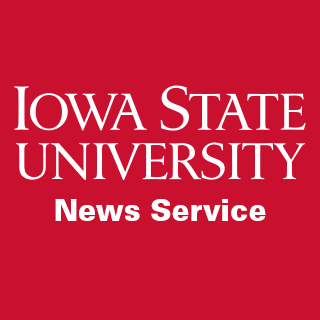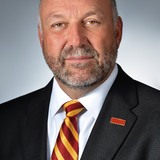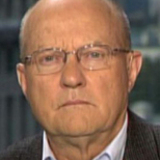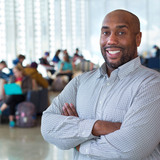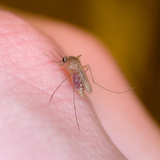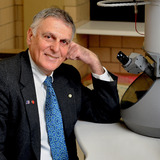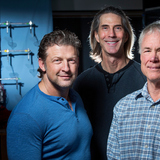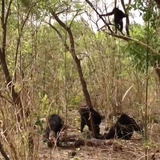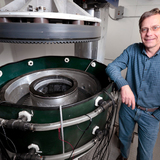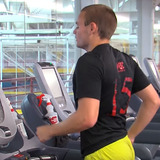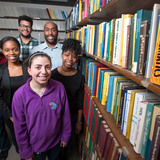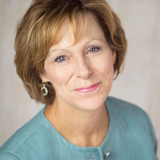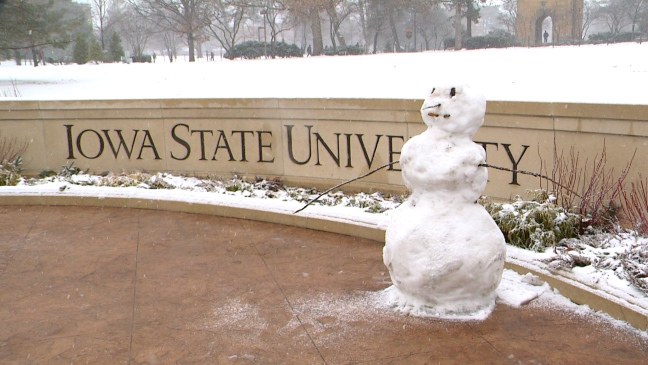News Archive
Sunday, February 12 2017
-
'The Charleston Syllabus' co-editor will discuss race and racism at ISU Feb. 20
After the killings at a historic black church in Charleston, South Carolina, in June 2015, social media erupted with people trying to make sense of the tragedy. The Twitter hashtag #charlestonsyllabus quickly became their top resource. The bibliography linked to scholarly works on the tumultuous history of race relations and racial violence globally. One of the creators of the syllabus, Keisha Blain, will present "In the Shadow of Charleston: Reflections on Race, Racism and Racial Violence" at 7 p.m. Monday, Feb. 20, in the Memorial Union Great Hall. Her talk is free and open to the public.
-
ISU report: Iowa public schools benefit from SAVE, but fund may not be enough for future needs
Money collected through a one-cent statewide sales tax has helped Iowa schools make significant progress in addressing overdue facility and equipment needs, according to an economic analysis by Iowa State University researchers. The study also found that school districts used the Secure an Advanced Vision for Education (SAVE) Fund to provide property tax relief. However, researchers project that the fund will not be enough to meet future needs.
-
President Leath: Every member of the Cyclone family is important, valued
In a letter to the university community, President Steven Leath shares his thoughts on the executive order and underscores his commitment to a safe, welcoming and inclusive environment for all.
-
Lawrence Wilkerson will examine global and national security in ISU talk Feb. 15
An open critic of U.S. foreign policy — who is a former Bush administration State Department official and retired U.S. Army officer — will speak at Iowa State. Retired U.S. Army Col. Lawrence Wilkerson will present "Redefining Global and National Security" at 8 p.m. Wednesday, Feb. 15, in the Memorial Union Great Hall. His talk is part of the university's World Affairs Series, and is free and open to the public.
-
Change agent: Michael Young
Michael Young wants to help students excel in science, technology, engineering and math by bridging the cultural divide that exists in many public schools. The fact that it exists is not intentional, but Young says we need to acknowledge it in order to move forward. Young’s motivation stems from his own childhood experiences.
-
Iowa State University to take part in center of excellence focused on vector-borne diseases such as Zika, West Nile
Iowa State University is one of several institutions taking part in a new national center studying diseases spread through the bites of infected insects. The Upper Midwestern Center of Excellence in Vector Borne Diseases is funded by a $10 million grant from the Centers for Disease Control and Prevention.
-
Nobel Laureate Dan Shechtman to link entrepreneurship, world peace in public lecture
Nobel Laureate Dan Shechtman of Iowa State, the Ames Laboratory and Israel's Technion will give a public lecture linking technological entrepreneurship to world peace and prosperity. The lecture will be at 5:30 p.m., Monday, Feb. 6, in the Great Hall of the Memorial Union. The event is free and open to the public.
-
Iowa State University scientists design electricity generator that mimics trees
ISU researchers have built a prototype biomimetic tree that generates electricity when wind blows through its artificial leaves. The researchers think such technology may help people charge household appliances without the need for large wind turbines.
-
Chimps’ behavior following death disturbing to ISU anthropologist
Shocking is one word Jill Pruetz uses to describe the behavior she witnessed after a chimp was killed at her research site in Fongoli, Senegal. The fact that chimps would kill a member of their own community is extremely rare – most aggression is between communities – but the abuse that followed was completely unexpected.
-
Iowa State scientist receives grants to improve glacier-flow models, sea-level predictions
Iowa State's Neal Iverson, who has studied glaciers in Iceland and Norway, is working with an international team on two projects that aim to build more realistic computer models of glacier flow. The researchers hope to understand how glaciers will speed up over the next century as the climate warms. They say that could help them predict how much glaciers will contribute to the rise of sea levels.
-
Video game ratings work, if you use them
Nearly every video game sold or downloaded comes with a rating that provides age-appropriate guidelines based on the game’s content. Critics have questioned the effectiveness of ratings, but new research from Iowa State University finds children spend less time playing violent video games when their parents use the rating system to guide purchases and set rules for video game play.
-
To improve health and exercise more, get a gym membership, Iowa State study suggests
If your New Year’s resolution was to exercise more in 2017, chances are you’ve already given up or you’re on the verge of doing so. To reach your goal, you may want to consider joining a gym, based on the results of a new study from a team of Iowa State University researchers.
-
MOCA boosts student retention and success at Iowa State
The primary goal of the Mathematicians of Color Alliance, better known as MOCA, is to recruit and retain underrepresented graduate students. But this student organization is doing much more to mentor and help students make Iowa State home.
-
Iowa State celebrates grand opening of its newest student residence, Geoffroy Hall
Iowa State University President Emeritus Gregory L. Geoffroy returned to campus Jan. 18 to join students, university officials and community members in celebrating the grand opening of his namesake building and ISU’s newest student residence, Geoffroy Hall.
-
Unseen role of the first lady is why the position remains important today, says ISU professor
First ladies are often defined by the causes they champion, but they also play a vital role the public rarely sees, says Stacy Cordery, an expert on first families and a professor of history at Iowa State University. That behind-the-scenes role is why Cordery says the position is still important.
